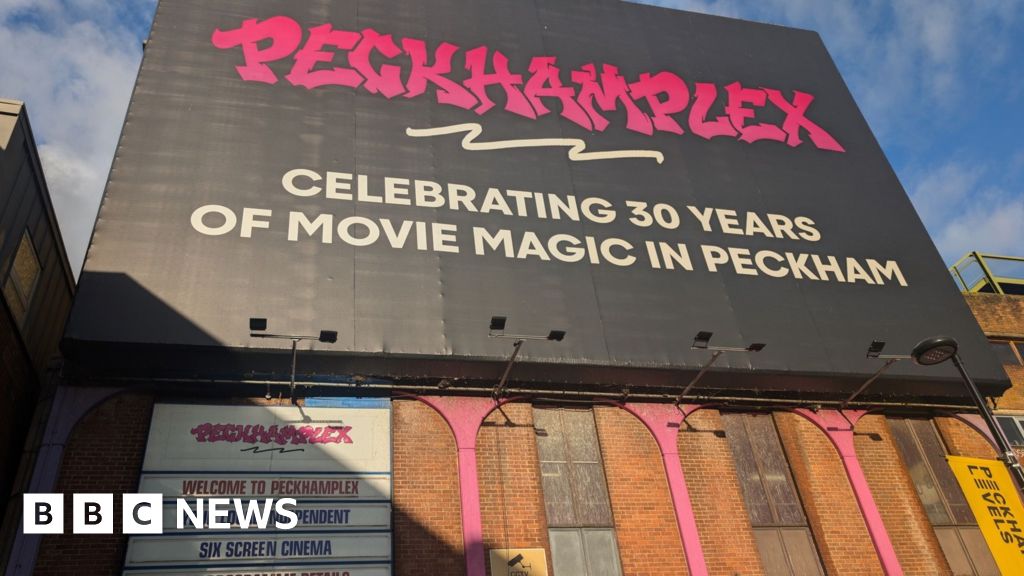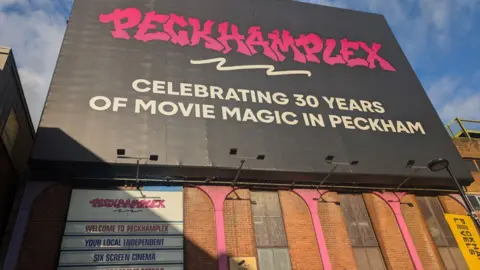 George Walker/BBC
George Walker/BBCA range of local filmmakers headed to an award-winning cinema in south-east London to display their latest work at a short film showcase of the capital’s independent cinematic talent.
The event at the Peckhamplex was part of the Peckham and Nunhead Free Film Festival (PNFF), a roaming roster of screenings run by volunteers across the area’s best small venues.
Celebrating its 16th anniversary this year, the festival is part of a larger umbrella of film festivals across London. Others will be held at Raynes Park and Streatham coming this autumn.
On Wednesday night, 12 short films were shown to a packed-out audience, with subjects ranging from life in the jungles of Borneo to one woman’s experience of domestic abuse.
“The energy in the room reaffirmed our belief in the hunger for independent work that speaks to the physical, social, and emotional realities of our communities,” PNFF said.
BBC London spoke to some of the filmmakers to discover more about their work.
‘My dad is such a good story teller’
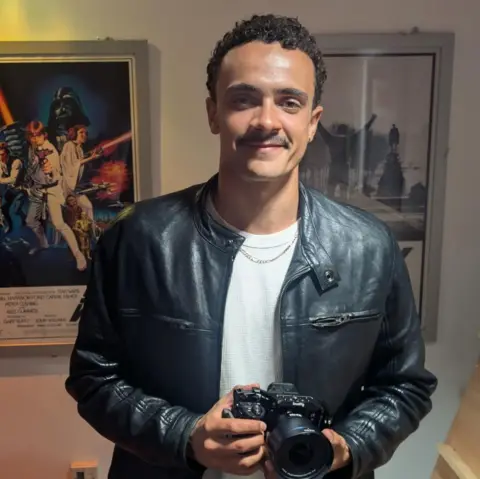 George Walker/BBC
George Walker/BBCSebastian Piette Pereira’s How My Dad’s Worst Enemy Became His Best Friend was the shortest film of the evening but certainly packed an emotional punch.
The film is an interview between Seb and his father about his time growing up in Sao Paolo and feud, and eventual beloved friendship, with another local boy, Zé Carlos.
It’s shot with bright colours, using flashes of a chessboard to show how the two used the game to stop brawling and come together.
Seb said his father is “such a good storyteller” and that he showed the film “to all his Brazilian mates back home”.
‘Bathrooms can be people’s safe space’
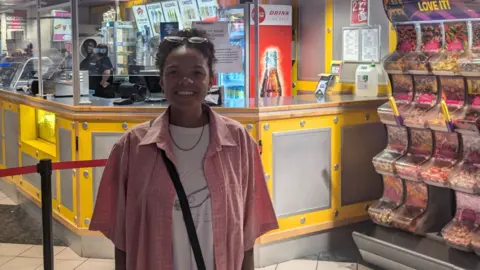 George Walker/BBC
George Walker/BBCSheffield-born filmmaker Sakhile Shann’s Deposition sheds light on controlling and coercive behaviour.
The film portrays how one woman retreats to her bathroom, and the subtle but ever encroaching signs of emotional manipulation and domestic abuse.
“I realised that a thread throughout a lot of people’s stories, and a sort of safe space when they were sharing a home environment with these people was the bathroom, and they would go and lock themselves in there for a tiny bit of respite,” she said.
Her film supports the Anah Project, a women’s refuge and support service, with an upcoming screening at the Avalon Cafe in Bermondsey also raising money for charity.
‘I got to know my grandmother better’
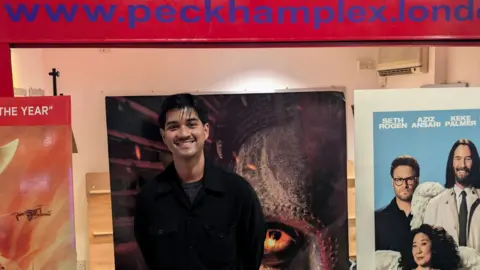 George Walker/BBC
George Walker/BBCIn his personal documentary, A Portrait of My Grandmother, Jarvis Laurence takes viewers to Bario, a small village in the jungles of Borneo, where he sits down with his grandmother, living in a small settlement nestled between luscious rainforest, to talk about her life.
“My relationship with my grandmother is sort of quite static… It was the first time I got to know her,” Jarvis said.
The results are a stunning view into another way of living which is, in Jarvis’s words, informed by his and his grandma’s “spirituality”, with the film exploring the role of religion in the community.
‘Community can make you find your own identity’
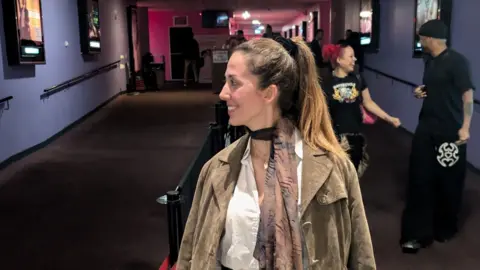 George Walker/BBC
George Walker/BBCGeorgia Zeta Gkoka, known as Zeta, met the subject of her film You Can Call Me Lou, the now retired dancer Louise Krammer, while at work in Brixton and after the two got talking, their friendship blossomed into the project.
Zeta said: “When I met her, I found so much beauty in this person.”
The documentary follows Louise, or Lou, from being brutally kicked out when she came out to her parents as trans, to the immense freedom of her new London life in the 80s, dancing in well-know LGBTQ+ clubs such as Heaven.
“The heart of the film is basically how dance is an evocative medium and how the sense of community can make you find your own identity,” says Zeta.
You Can Call Me Lou will also be showing as part of the BFI’s London Film Festival.
‘Creativity, queerness and ecology’
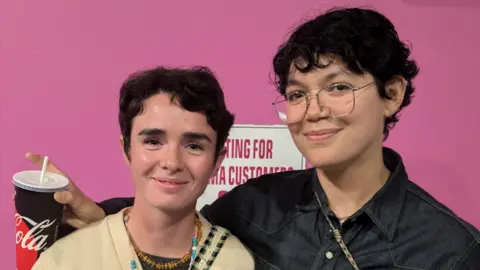 George Walker/BBC
George Walker/BBCIso Attrill’s Paradise was really unlike any other film I watched that evening.
In it, the audience was introduced to its protagonist and Iso’s friend Mol Benge, a non binary trans artist who uses their garden as a means to navigate the world.
Iso describes the work eloquently as Mol’s “meditations on the relationship between creativity, queerness and ecology”.
It includes peaceful footage of Mol planting seeds, as well as their own stop motion animation depicting the life cycle of food and seeds going back into the earth to grow as a metaphor for life and its transience.
The festival finishes this weekend and includes a screening of Nosferatu at Nunhead Cemetery.
